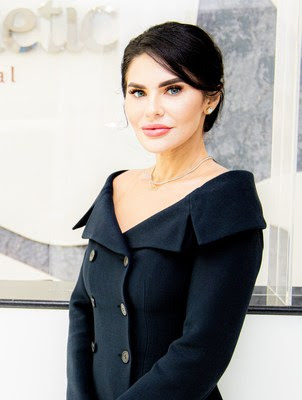Ethiopia and South Sudan have agreed to carry out a series of joint infrastructure projects that would eventually enable the latter to link with the port of Djibouti.
The agreement was reached on Tuesday after a high-level South Sudan delegation led by Vice-President, Taban Geng Gai, met with a group of Ethiopian Ministers led by Finance Minister, Ahmed Shide.
Earlier, the two sides discussed ways how to enhance joint infrastructure connectivity projects.
In this regard, both sides agreed on ways to enhance their previously designed plans in the areas of road infrastructure, energy, telecommunications, water transportation, and other vital economic sectors with a view to creating integration for mutual benefits.
Per the newly reached agreement, one of the key projects being prioritized was to undertake road projects with a view to boosting connectivity between the two landlocked countries.
After the discussions, Ethiopia’s Finance Minister, Ahmed Shide, confirmed that the two sides have concluded a very important agreement in terms of advancing two road projects.
“We comprehensively agreed to work on joint infrastructural connectivity that will overcome geographical barriers in terms of trade and logistics flows between our two countries and people-to-people relations.”
Cut reliance on Kenya’s port
The fresh agreement with Ethiopia comes only a few days after South Sudan announced buying three acres of land at the port of Djibouti for the construction of a facility to handle its import and export of goods as the landlocked country eyes an alternative route to cut high dependency on Kenya’s Mombasa port.
“We have only been using Port Sudan and Mombasa but recently, we have decided to go to Djibouti and as I am speaking to you, we have landed in Djibouti,” South Sudan Minister for Petroleum Puot Kang Chol is quoted as saying by local media.
The minister said the land was procured by the Ministry of Petroleum for the purpose of exporting the country’s crude oil as well as using it on imported goods.
If effected, the move will hit the port of Mombasa given that Juba is one of Kenya’s largest clients importing nearly all of its cargo through the Kenyan port.
Rising costs Khartoum charges Juba for pipelines have also pushed South Sudan to eye alternative routes to export its crude oil to the international market.
Port of Djibouti
The road projects will be given top priority to open up transportation so that connectivity of South Sudan will be enhanced via Ethiopia through the Djibouti corridor, the Ethiopian minister added.
“These projects will be financed jointly and we have agreed to finalize the feasibility and preparations in terms of selecting a contractor so that the joint financing mechanism will be worked upon,” Shide said.
The South Sudanese delegation, on its part, vowed to cooperate and work for the immediate implementation of the joint projects.
“The agreed projects will be operationalized and put into consideration as soon as all the technical aspects are addressed,” said Michael Makuei Lueth, South Sudan’s Information minister said on behalf of the delegation.
Lueth said that it is worth mentioning that South Sudan, as a landlocked country, will benefit from the port of Djibouti using Ethiopia as a transport hub.
“Trade can be facilitated by Ethiopia through the Djibouti corridor,” he said adding “We expect Ethiopia to support us so that we can grow and be as strong as Ethiopia is today.” the South Sudanese minister added.
In transport connectivity, river, fibre optics and transmission line connectivity has been agreed upon and the preparation to realize the agreement will commence right after this meeting, Ethiopian officials said.
“As soon as the preparations are completed we will work together for resource mobilization and reaching out to development financial institutions as part of the Horn of Africa initiative” Shide added.
Aviation Sector
The two sides have also agreed to work on the aviation sector.
“Ethiopia has massive experience in airport construction. With this capacity, we have also agreed to share our experience and work on a joint mechanism on aviation connectivity and development with the republic of South Sudan.” the Ethiopian Finance Minister told journalists.
Peace Process
Ethiopia will continue to work and support the peace process in South Sudan, the minister said.
He noted that ensuring regional peace and stability are crucial for the two countries’ joint infrastructural development.
“We have a very comprehensive political commitment and will to advance the cooperation between the two countries,” Shide added.
The South Sudanese high-level delegation arrived in Addis Ababa on Wednesday for a three-day official working visit.
Upon arrival at Addis Ababa Bole International Airport, the South Sudanese delegation was warmly received by Ethiopian Defense Minister Abraham Belay and Director General of African Affairs of the Ministry of Foreign Affairs, Fisseha Shawul, among other senior government officials.
Source: Sudan Tribune

